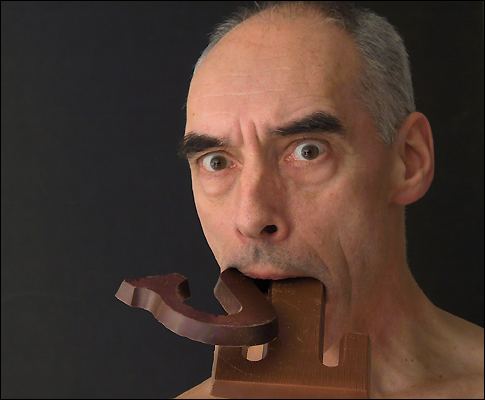| Battle of Letters |

|
Last month I read in the paper that a Flemish member of the Belgian cabinet agrees with me in doubting the accuracy and sense of the new spelling rules as epitomised by the "pancake philosophy". (Under the new spelling rules that were introduced a few years ago the Dutch word for pancake, pannenkoek, is now spelled with an n in the middle where no such n used to be. Although this is only one of a multitude of changes having been imposed on the Netherlands and Flanders, it has come to embody the relative absurdity of the whole exercise.) I wonder what the use is of drafting spelling rules, given how few people are up to the challenge of complying with them. Last month I received as a birthday gift both the "Green Booklet" (this being the Dutch language's "bible of received spelling") and the "Glossary of the Dutch language", whose cover, incidentally, is also very green - not because I'm afraid to be thrown in jail for breaking the rules, but because it embarrasses me to fall down on the job. Clearly I have a deep-seated fear of being dismissed as illiterate. I'm sure this will change given time, as it already has with the mental arithmetic lessons we were taught at primary school level and which have since been superseded by pocket calculators right up to secondary education and college exam level. I would therefore rely on your capacity as a sympathetic fellow citizen in that I would ask you not to burst out laughing at my glimpse of the future - a future in which our descendants will be communicating using a linguistic pocket calculator, soon to be followed by an auricular device which when hooked up to the brain displays on command the wearer's unuttered thoughts on a tiny fold-away monitor or translates them into realistic sounds helped by a sub-woofer system integrated in the soles of his or her shoes. But I'm getting ahead of myself. I should first apologise for being so biased when presenting my views of the spelling changes that were implemented when the previous century was drawing to a close, and for which I have consistently blamed a bunch of Flemish fanatics. In so far as anyone considers himself as having been influenced by me in this sense, let me suggest that our National Awareness has traditionally not been terribly open to higher powers although this stopped being the popular view after the Dutch East India Company, which casts even greater doubt on the linguistic similarity, it being rather unlikely that those calculating Dutchmen didn't have a hidden agenda when consenting to the proposed changes - for what could be a better example of the divide-and-rule tradition of Christian politics in the Low Countries than the creation of an untenable situation which may be expected to spark third-party protest, thus smoothly paving the way for implementation of the actual plan as a reasonable yet inevitable alternative: the decision from now on to leave it to Belgium and the Netherlands themselves to make up their own linguistic rules? |